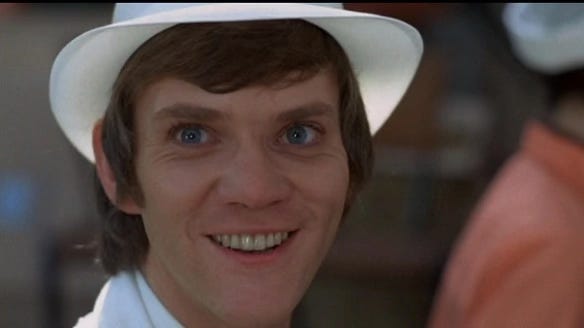The Mick Travis Trilogy
If.... (1968), O Lucky Man! (1973), Britannia Hospital (1982)
Director Lindsay Anderson’s film trilogy starring Malcolm McDowell and a host of supporting character actors is not one continuing story (or is it?), as we have come to think of trilogies being. In each film, McDowell plays a character named Michael Arnold Travis, called Mick. It is only the character’s name and portrayer that remain consistent. Just as…




